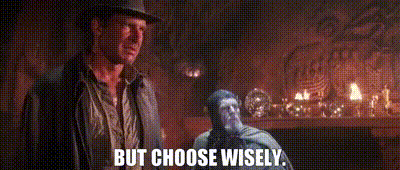In the immortal words of Public Enemy, "F**k your own thing if if your own thing is the wrong thing." A model with a single point of failure and no redundancy is the wrong thing. It is only as good as the local "God" you appoint to be responsible for everything. And when God has an off-day, tragedy will follow.
We're not talking "ideology" here. Gun safety rules are eminently prudential. They are so prudentially well-reasoned and well-established that it is immoral not to follow them (e.g., in the same way that we recognize the immorality of being so imprudent as to text and drive). The question, therefore, is NOT why "ideology" is being "wedged" into this "island industry," but rather "Why hasn't this industry followed the 'best practices' model that applies to everyone else in the real world?"
To be clear, there is nothing wrong with having an armorer on the set who operates as the "highest authority" on gun safety. The problem only emerges when the armorer is taken to be the "only" authority on safety, stripping redundancy (and collective responsibility) out of the model entirely.
Also, see the quotation of Clooney upthread which challenges the naive idea that only the armorer is responsible for everything (which is the line of analysis so desperately asserted to exculpate Mr. Baldwin of any and all responsibility).
You've made that point though. For a few pages it looks. Like AgrippinaX, I've also agreed with some of your earlier posts and have commented in support of them on
general principle; however, what I feel
should be doesn't mean that it
is. There is a line between the two. My post was to clarify what
is. Or at least what appears to be on minimal exploration.
At a point though, you seem to end up arguing against
posters for an industry's standard than none of us have power over. My post was to share links that explain, at least on a superficial level, industry standards and how those standards are (or are not) regulated. If you want to argue for higher standards, then by all means do so. I do not disagree and believe there should be a higher level of control and responsibility. To what level is for the industry to decide, assuming the industry is allowed to continue self-regulation. I have no part in that. Do you? Does anyone in this thread? Does anyone really argue that such standards should
not exist or are people saying that
in the context of what regulations do exist, it may not be so black or white? I'm capable of holding both thoughts at the same time that standards should be higher while recognizing that
my standards may not align with an industry. The investigation may clarify that. I'm still not a detective. That it hasn't happened yet at least suggests that may not actually be so clear.
These are ideas that you believe should be in place. I generally agree with that. The problem here is that those ideas apparently differ from what the industry seems to have in place now. You seem to be arguing for what should be. My post was to clarify what is. Your response to that post leads me to believe that the argument is now with me as if I am defending the industry or have any say in any of its self-regulating standards. I don't?
The question, therefore, is NOT why "ideology" is being "wedged" into this "island industry," but rather "Why hasn't this industry followed the 'best practices' model that applies to everyone else in the real world?"
I can't answer that. I doubt anyone in this thread can. I even suggest that the conversation should evolve to that in my post that you quoted. Also, I didn't
ask why ideology is being wedged into an industry standard. It just is. The industry seems to have their own regulation standards. That's what
is until it changes. This accident may be a tipping point to that direction. Until that changes though, that's the reality of it.
Also, see the quotation of Clooney upthread which challenges the naive idea that only the armorer is responsible for everything (which is the line of analysis so desperately asserted to exculpate Mr. Baldwin of any and all responsibility [bolded added]).
I read the post. I agree and encourage that to be the norm. That reference here doesn't speak to anything I've posted though, and seems to only exist in this reply to create a counterpoint against a point that I've not made. Why type this other than to imply that is my belief? Odd.
The bolded text is a major assumption btw. Considering how articulate your posts have been, I can't help but believe that this quote was an effort to align my reply with that motive. To be clear, I do
not care to desperately exculpate Mr. Baldwin of
any and all responsibility. That goal has nothing to do with my post or my thoughts on the matter whatsoever.
Any and
all? Really? Why try to connect that to my post? Normally, I don't think I would jump to such conclusions but your writing style suggests that you're sharp. Sharp enough to see
that on proofing. Finally, it is not
my naïve idea. That idea belongs to the industry and its regulatory standards. Something about wedging is on the tip of my tongue...
At some point, even if I may agree with you in parts, it feels as though you only want to argue for the sake of arguing. That becomes difficult to respond to.



